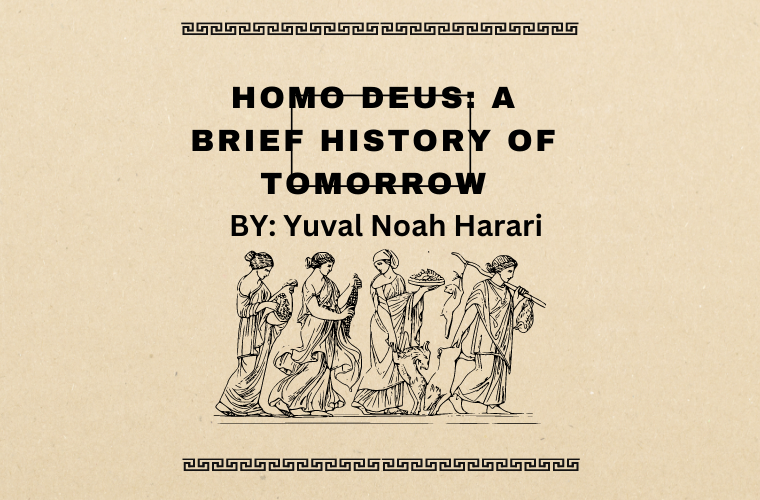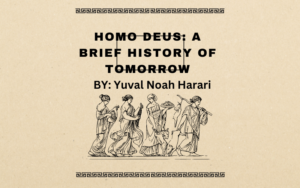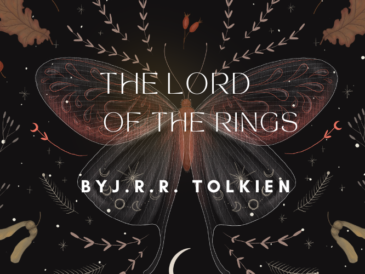About Author
Yuval Noah Harari is a historian, philosopher, and best-selling author. He is known for his books Sapiens: A Brief History of Humankind, Homo Deus: A Brief History of Tomorrow, and 21 Lessons for the 21st Century. He was born in Israel in 1976 and studied at the Hebrew University of Jerusalem. His books have been translated into over 50 languages and have received widespread critical acclaim. Harari’s writing focuses on the intersection of history, science, and philosophy, and he is particularly interested in exploring the future of humanity and the impact of technology on society.
Summary:
- Homo Deus: A Brief History of Tomorrow is a book that explores the future of humankind and the development of new technologies. The author discusses the possibility of humans creating new forms of life, such as superintelligent AI, and the impact this will have on society.
Main Themes:
- The future of humanity
- The impact of new technologies, particularly AI
- The future of religion and spirituality
- The evolution of Homo Sapiens into Homo Deus
Reviews:
- The book has received generally positive reviews, with many praising its thought-provoking ideas and its blend of science, history, and philosophy.
- Critics have praised the author’s ability to synthesize complex ideas into a coherent and accessible narrative.
- Some reviewers have noted that the book is somewhat speculative and that some of its predictions may not come to pass.
Overall, Homo Deus: A Brief History of Tomorrow is a well-researched and thought-provoking book that explores the future of humanity and the impact of new technologies on society.
The Future of Religion and Spirituality
In Homo Deus: A Brief History of Tomorrow, Yuval Noah Harari explores. The future of religion and spirituality in light of the developments in technology and the evolution of Homo Sapiens into Homo Deus. He argues that as humans create new forms of life, such as super intelligent AI, they will have to find new ways of answering the fundamental questions of life, such as the meaning of existence.
Harari suggests that traditional religious institutions and belief systems may not be able to provide satisfactory answers to these questions in the future and that new forms of spirituality may emerge. He also raises the possibility that humans may merge with AI and transcend their biological limitations, leading to the creation of a new form of consciousness and spirituality.
The Evolution of Humans: A Journey Through Time
Humans are a remarkable species, unlike any other on the planet. Over millions of years, we have evolved from simple organisms into the complex, intelligent beings we are today. In this article, we’ll take a journey through time, tracing the evolution of humans from our earliest ancestors to the present day.
Our Early Ancestors
Our story begins over 7 million years ago, with the first known human ancestor, Sahelanthropus tchadensis. This ancient species lived in what is now Chad and had a mix of human and chimpanzee characteristics. Over the next few million years, a number of other human-like species evolved, including Erroring tugenensis and Ardipithecus ramidus. These early humans lived in Africa and had apelike features, but were also capable of walking upright.
The evolution of Homo Sapiens into Homo Deus
In Homo Deus: A Brief History of Tomorrow, Yuval Noah Harari explores the idea of the evolution. Homo Sapiens into Homo Deus. He argues that humans have undergone several major evolutionary transformations. in the past and that they are now on the brink of another such transformation.
According to Harari, Homo Sapiens, which means “wise man” in Latin, evolved from Homo erectus around 300,000 years ago. Since then, humans have gone through several major transformations, including the development of language. The agricultural revolution, and the scientific revolution. Harari argues that the next major transformation will be the creation of super intelligent AI and the merging of humans with technology
The Emergence of Homo erectus
About 2 million years ago, a new species emerged, known as Homo erectus. This species is considered the first true human, as they had a larger brain and were able to use tools and fire. Homo erectus also spread beyond Africa, with evidence of their existence found in Asia and Europe.
The Rise of Homo sapiens
About 200,000 years ago, a new species emerged, known as Homo sapiens. This species had a larger brain and a more sophisticated culture, and they soon became the dominant species on the planet. Over time, humans developed language, created art and music, and developed complex societies.
The Development of Civilization
Over the past 10,000 years, humans have made incredible strides, developing civilizations and creating technologies that have changed the world. Therefore, the first cities and writing systems, to the industrial revolution and the digital age, humans have continued to evolve and adapt to their changing environment.
Conclusion
The evolution of humans is an incredible story, one that is still unfolding today. From our earliest ancestors to the complex, intelligent beings we are today, we have come a long way. As we look to the future, it is clear that the evolution of humans will continue. New technologies and discoveries shaping our species in ways we can’t even imagine.
Whether you view the evolution of humans as a journey, a story, or simply a process, one thing is clear. It is a story worth telling, and one that will continue to captivate and inspire us for generations to come.




